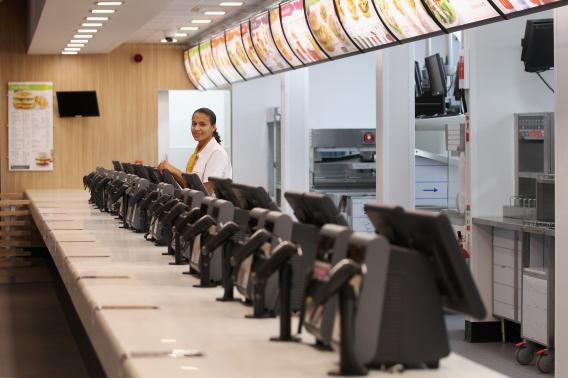The David Card / Alan Krueger empirical study showing no negative employment impact from a minimum wage increase (PDF) is famous because it showed what liberals wanted to believe and since Krueger is now serving in the Obama administration it’s natural to think of it as relevant to Obama’s push for a minimum wage hike. That study, however, was really just the start of a research agenda. For a much more persuasive run of the basic argument you really want to read Arindrajit Dube, T. William Lester, and Michael Reich “Minimum Wage Effects Across State Borders: Estimates Using Contiguous Counties” which is able to take advantage of a much larger dataset. The basic method is that since some counties are adjacent to counties that are located in different states, we can take advantage of variation in state minimum wage laws to assess the employment impact. The finding is that there’s zero employment impact within the actually occuring range of variation (this does not rule out, obviously, that a $50 minimum wage would cause job losses).
A related paper from Syliva Allegretto, Dube, and Reich titled “Do Minimum Wages Really Reduce Teen Employment?” concludes that no they don’t.
An analytic point that minimum wage proponents also offer, though perhaps not one they’re inclined to shout from the rooftops, is that the case for a higher minimum wage doesn’t strictly require that there be no disemployment effect. After all, if you can boost earnings for a huge swathe of low-income Americans at the cost of one guy losing his job that seems like an acceptable price to pay. Two guys? Still acceptable. And so on. So the point is you have some margin for error here.
The interesting theoretical issue about these empirical findings is why don’t minimum wage hikes have large disemployment effects. The most optimistic reading is that you’re basically pushing toward an “efficiency wage” equilibrium and nobody loses. Another possibility is simply that firms are operating in markets that aren’t all that competitive so firms are earning monopoly profits that the minimum wage hike partially claws back. Yet another possibility is that workers in minimum wage jobs are typically doing a decent amount of slacking off, and that a higher minimum wage essentially forces managers to force their staff to slack off less—in effect the minimum wage pushes workers out of leisure and into work. An issue worth considering is that the minimum wage contains a fair number of loopholes: That’s your tipped workers, your interships (whether unpaid or with a “travel stipend”), and also a lot of work in family businesses. Workers who are genuinely unemployable at a new higher minimum wage may shift into work in the exempt sectors.
Last but by no means least, if you look at the main sectors that employ minimum wage workers—fast food and retail—it’s clear that a move is under way to replace workers with kiosks of various kinds. Phasing in a minimum wage hike over three years is going to moderately accelerate that already-underway trend.
